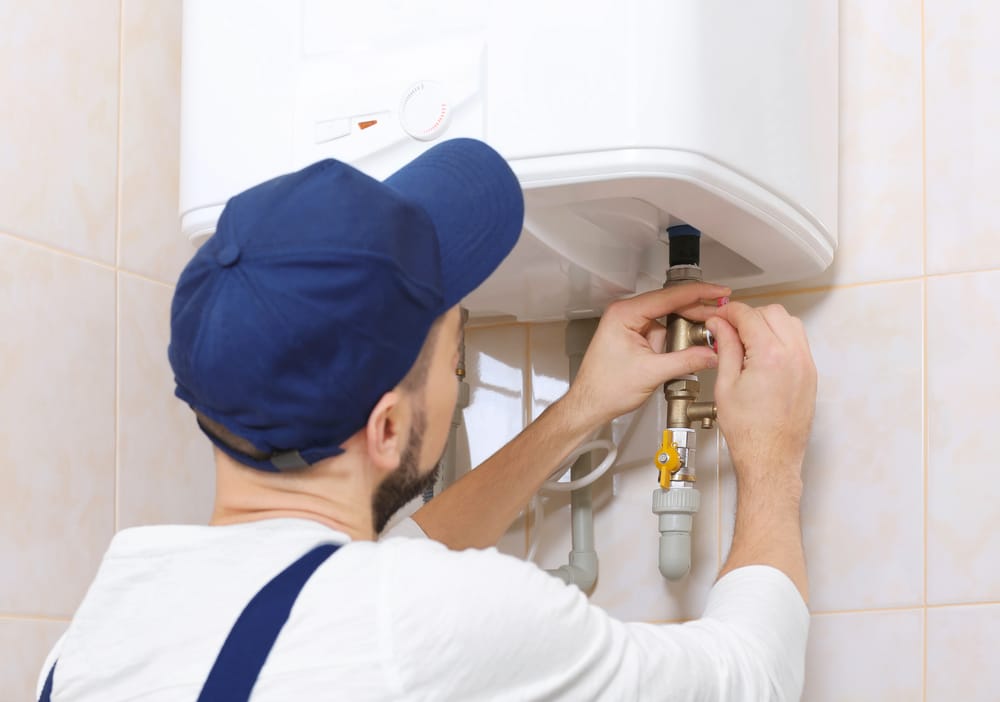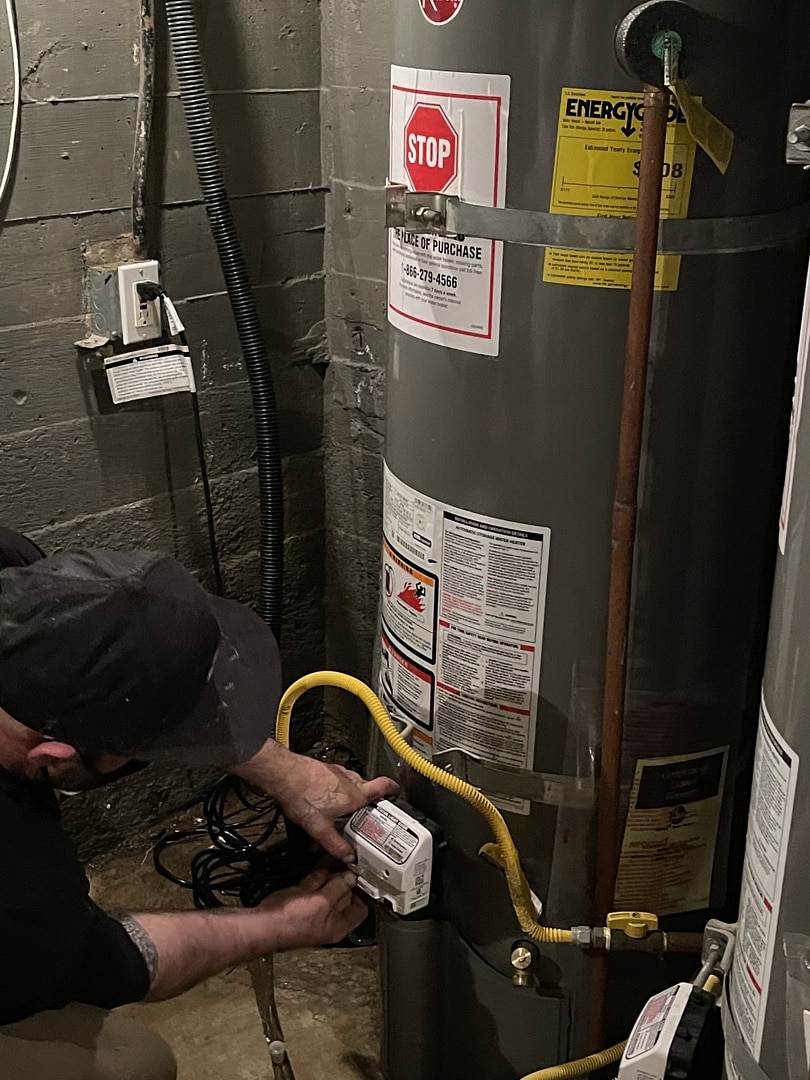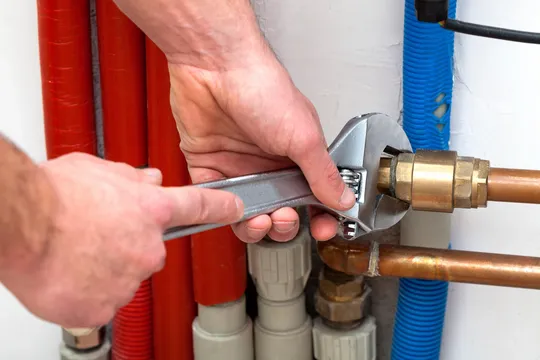Are you facing issues with your hot water heater? Wondering if it’s worth repairing or if it’s time for a replacement? Look no further! In this comprehensive guide, we will navigate the pros and cons of repairing a hot water heater, giving you the knowledge to make an informed decision.
Signs of a malfunctioning hot water heater
A malfunctioning hot water heater can be a major inconvenience in any household. There are several signs that indicate your hot water heater may need repairs. One common sign is a lack of hot water or inconsistent water temperature. If you find yourself taking cold showers or constantly adjusting the temperature, it could be a sign that your hot water heater is not functioning properly. Another sign is unusual noises coming from the unit, such as banging or popping sounds. These noises can indicate mineral buildup or a faulty heating element. Additionally, if you notice water pooling around the base of the unit or leaking from the connections, it’s important to address the issue promptly.
The importance of a functioning hot water heater cannot be overstated. Hot water is essential for various daily activities, such as showering, doing laundry, and washing dishes. Without a reliable hot water heater, these tasks become more challenging and less enjoyable. Furthermore, a malfunctioning hot water heater can lead to higher energy bills. If the unit is working inefficiently, it may consume more energy to heat the water, resulting in increased utility costs. By ensuring your hot water heater is in good working condition, you can enjoy the convenience of hot water while also saving money.
Factors to consider when deciding to repair or replace
When faced with a malfunctioning hot water heater, it’s important to consider several factors before deciding whether to repair or replace the unit. One crucial factor is the age of the hot water heater. Most conventional hot water heaters have a lifespan of around 10-15 years. If your unit is nearing the end of its lifespan and experiencing frequent issues, it may be more cost-effective to replace the unit rather than investing in repairs.
Another factor to consider is the extent of the damage. Minor issues, such as a faulty thermostat or a leaking valve, can often be repaired at a relatively low cost. However, if the tank itself is leaking or the heating element is severely damaged, repairs may not be feasible or cost-effective. In such cases, it may be more prudent to invest in a new hot water heater.
The cost of repairs is also a significant consideration. While repairs may seem like the more affordable option at first, it’s essential to evaluate the long-term costs. If your hot water heater requires frequent repairs, the expenses can quickly add up. In such cases, it might be more economical to replace the unit with a newer, more efficient model that comes with a warranty.
Cost comparison: Repair vs. replacement
When it comes to deciding between repairing and replacing a hot water heater, the cost is often a major determining factor. To make an informed decision, it’s crucial to compare the costs of both options.
The cost of repairing a hot water heater depends on the extent of the damage and the cost of replacement parts. Minor repairs, such as replacing a thermostat or a valve, can range from $150 to $300. However, more significant repairs, such as fixing a leaking tank or replacing a heating element, can cost anywhere from $500 to $1,500 or more. It’s important to note that these are rough estimates, and actual costs may vary depending on the location and the specific issues with your hot water heater.
On the other hand, the cost of replacing a hot water heater depends on several factors, including the type of unit, its size, and its energy efficiency rating. Conventional tank-style hot water heaters are generally less expensive to purchase and install compared to tankless or hybrid models. The average cost of a new tank-style hot water heater, including installation, can range from $800 to $1,500. However, if you opt for a more energy-efficient model or a tankless system, the upfront costs can be significantly higher, ranging from $1,500 to $3,500 or more.
When considering the cost of replacement, it’s essential to factor in the potential long-term savings. Newer hot water heaters are typically more energy-efficient, which can result in lower utility bills over time. Additionally, many manufacturers offer warranties on new units, providing added peace of mind and potential cost savings in case of future issues.
DIY hot water heater repairs
While some hot water heater repairs require professional assistance, there are a few minor issues that you can tackle on your own. However, it’s important to note that attempting DIY repairs without the necessary knowledge and experience can lead to further damage or personal injury. If you’re not confident in your abilities or if the issue is more complex, it’s best to leave the repairs to a professional.
One common DIY repair is replacing a faulty thermostat. Before attempting this, it’s important to turn off the power to the unit to prevent electric shock. Once the power is off, you can remove the access panel and disconnect the wires from the thermostat. Take note of the wire connections and then remove the old thermostat. Install the new thermostat by connecting the wires according to the manufacturer’s instructions. Finally, reattach the access panel and restore power to the unit.
Another DIY repair that you can attempt is replacing a leaking valve. Begin by turning off the water supply to the hot water heater. Drain the tank by opening a hot water faucet in your home. Once the tank is drained, use a wrench to disconnect the leaking valve from the tank. Replace it with a new valve, ensuring it is properly sealed. Finally, turn on the water supply and check for any leaks.
It’s important to remember that these DIY repairs are only suitable for minor issues, and if you’re uncertain or uncomfortable with the process, it’s best to hire a professional.
Hiring a professional for hot water heater repairs
For more complex or extensive hot water heater repairs, it’s advisable to hire a professional. An experienced plumber or hot water heater technician can accurately diagnose the issue and provide the necessary repairs. Additionally, professionals have the knowledge and tools required to ensure the repairs are conducted safely and effectively.
When hiring a professional for hot water heater repairs, it’s essential to choose a reputable and licensed contractor. Ask for recommendations from friends, family, or neighbors, and research online reviews to gauge the quality of their work. Obtain multiple quotes from different professionals to compare prices and ensure you’re getting a fair deal. It’s also important to inquire about warranties or guarantees on the repairs, as this can provide added protection and peace of mind.
By hiring a professional, you can avoid the risks associated with DIY repairs and ensure that your hot water heater is repaired correctly the first time. Additionally, professionals can often provide valuable advice on maintenance and energy-saving tips to prolong the lifespan of your hot water heater.
Common hot water heater problems and their solutions
Hot water heaters can experience various issues, some more common than others. Understanding these problems and their potential solutions can help you troubleshoot minor issues and determine whether professional repairs are necessary.
One common problem is a lack of hot water or insufficient water temperature. This can be caused by a faulty thermostat, a broken heating element, or a buildup of sediment in the tank. In some cases, simply adjusting the thermostat or flushing the tank can resolve the issue. However, if the problem persists, it’s advisable to seek professional assistance.
Another common issue is a leaking hot water heater. Leaks can occur in various areas, such as the tank, valves, or connections. If you notice water pooling around the base of the unit or dripping from the connections, it’s important to address the issue promptly. In some cases, a leaking valve or a loose connection can be easily tightened or replaced. However, if the tank itself is leaking, repairs may not be possible, and a replacement may be necessary.
Sediment buildup is another common problem that can affect the performance of a hot water heater. Over time, minerals and sediment can accumulate at the bottom of the tank, reducing its efficiency and potentially causing damage. Flushing the tank regularly can help prevent sediment buildup and extend the lifespan of your hot water heater. If you’re unsure how to flush the tank or if the sediment buildup is significant, it’s best to consult a professional.
Maintenance tips to prevent future issues
Preventive maintenance is key to ensuring the longevity and efficiency of your hot water heater. By following these maintenance tips, you can minimize the risk of future issues and potentially avoid costly repairs or replacements.
Regularly flush the tank: Flushing the tank once or twice a year helps remove sediment buildup and keeps the unit functioning optimally. To flush the tank, turn off the power and water supply, attach a hose to the drain valve, and direct the water into a drain or bucket. Open the valve and let the water flow until it runs clear.
Check the pressure relief valve: The pressure relief valve is a crucial safety feature that helps prevent excessive pressure buildup in the tank. To ensure it functions properly, test the valve by lifting the lever and allowing some water to discharge. If the valve is faulty or doesn’t release water, it’s important to replace it promptly.
Insulate the hot water pipes: Insulating the hot water pipes can help prevent heat loss and reduce energy consumption. This can be particularly beneficial if your hot water heater is located in an unheated area, such as a basement or garage.
Monitor the temperature settings: Set the temperature of your hot water heater to a safe and energy-efficient level. The recommended temperature is typically 120 degrees Fahrenheit (49 degrees Celsius). Higher temperatures not only increase the risk of scalding but also result in higher energy costs.
Schedule professional maintenance: Regular professional maintenance can identify and address minor issues before they escalate into major problems. A professional can inspect the unit, clean the tank, check for leaks or faulty components, and ensure the unit is functioning at its best.
Energy-efficient options for hot water heaters
If you’re considering replacing your hot water heater, it’s worth exploring energy-efficient options. Energy-efficient hot water heaters not only help reduce your carbon footprint but also result in lower energy bills over time. Here are a few energy-efficient options to consider:
Tankless hot water heaters: Unlike conventional tank-style units, tankless hot water heaters heat water on demand, eliminating the need for a storage tank. This results in energy savings as there is no standby heat loss. Additionally, tankless units have a longer lifespan and take up less space compared to traditional models.
Heat pump hot water heaters: Heat pump hot water heaters are highly energy-efficient as they transfer heat from the surrounding air to heat the water. They are more expensive upfront but can provide significant long-term savings. Heat pump units work best in areas with moderate climates.
Solar hot water heaters: Solar hot water heaters utilize energy from the sun to heat the water. They are highly sustainable and can provide substantial energy savings. While the upfront costs can be higher, solar hot water heaters often pay for themselves over time through reduced energy bills.
Hybrid hot water heaters: Hybrid hot water heaters combine the benefits of a heat pump system with a conventional storage tank. They are more energy-efficient than standard tank-style units but do not require significant modifications to existing plumbing or electrical systems.
When selecting an energy-efficient hot water heater, consider factors such as the size of your household, your hot water usage patterns, and the availability of renewable energy incentives or rebates in your area. Consulting with a professional can help you determine the best energy-efficient option for your home and budget.
Conclusion: Making the best decision for your home
In conclusion, when faced with a malfunctioning hot water heater, it’s essential to weigh the pros and cons of repairing versus replacing the unit. Consider factors such as the age of the unit, the extent of the damage, and the cost of repairs. While minor issues can often be resolved with DIY repairs or professional assistance, more significant or recurring problems may warrant a replacement.
When comparing the costs of repair versus replacement, consider the long-term savings and energy efficiency of newer models. Additionally, take into account the convenience and importance of having a reliable hot water heater in your home.
By being proactive and addressing issues promptly, you can extend the lifespan of your hot water heater and potentially save money in the long run. Regular maintenance, such as flushing the tank and checking for leaks, can help prevent future issues and ensure the optimal performance of your hot water heater.
Ultimately, the decision to repair or replace your hot water heater depends on your specific circumstances and budget. Consulting with a professional can provide valuable insights and guidance in making the best decision for your home.
So, whether you decide to repair or replace your hot water heater, remember that a reliable and efficient unit is essential for your everyday comfort and convenience.























